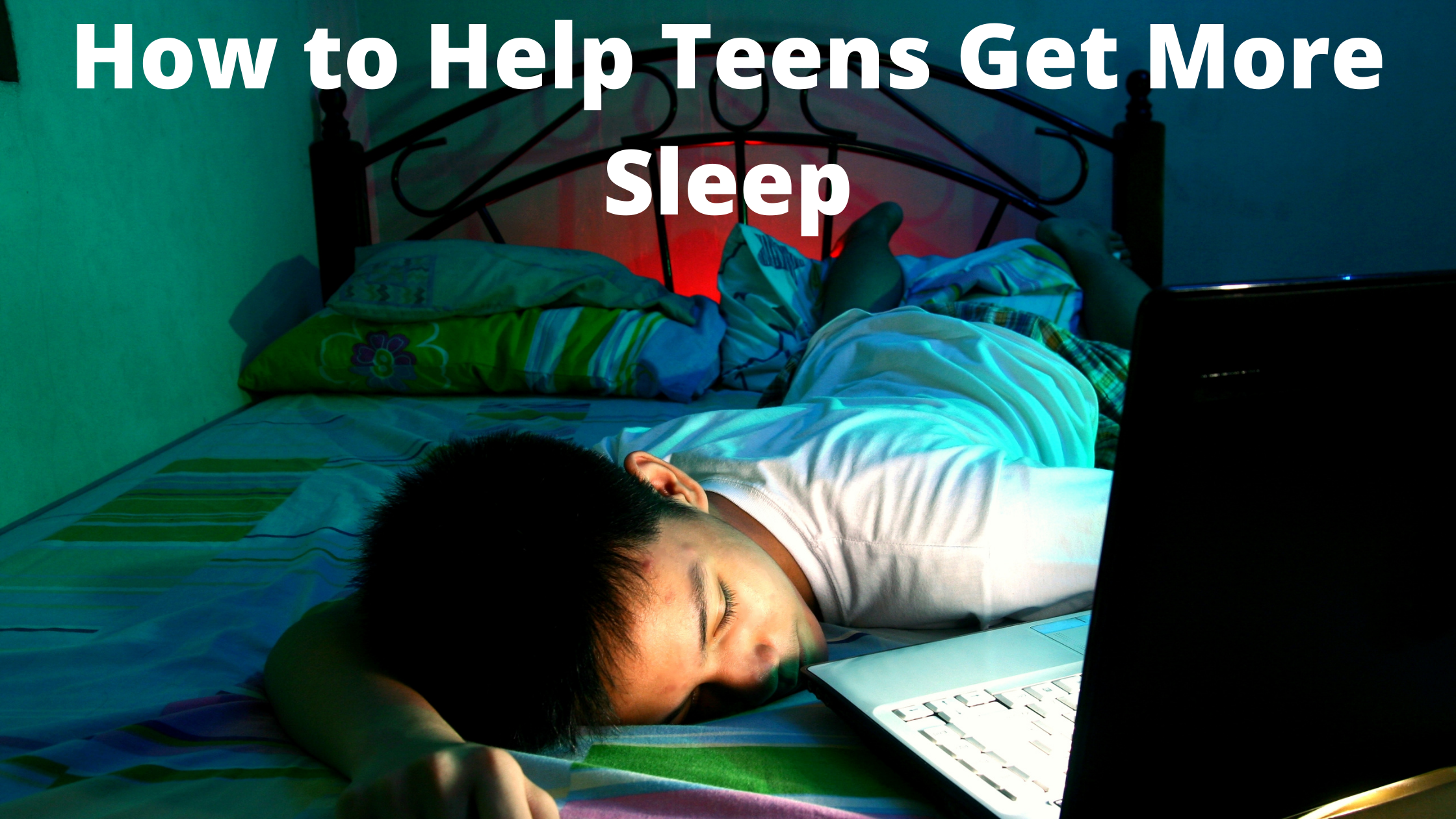
Teen sleep is increasingly threatened by many factors, however, this time of their life is full of so much growth and learning, that adequate sleep is required for them to fulfill their true potential. As teens age, their circadian rhythm is more geared towards later sleep and wake times. This means they are more inclined to go to sleep at a later time and wake up at a later time.
When school start times are too early and bedtimes are too late, most teens are not getting enough sleep. This can lead to mental health disorders like depression and anxiety. It can also lead to trouble focusing and concentrating in school, as well as mood regulation and memory. All of these are important for developing as a teenage.
Below are some ways to help you get your teen to get more sleep.
1. Encourage more sunlight hours
Sunlight is the main driver of our circadian rhythm. The circadian rhythm is what controls when we wake up and when we go to sleep. Light enters the retina and signals to the brain that it's time to wake up. When light goes down, or when it starts to become dark, then the brain begins releasing melatonin and getting prepared for bed.
Because teens' circadian rhythms are set later, exposing them to sunlight can help get their minds ready to wake up. Eating breakfast outside or in a well lit room can definitely help with that. Walking to school or going for an early morning walk or jog on the weekends can also provide that jumpstart of energy that they need.
During the winter when it may be darker for longer in the mornings, it's important that students are exposed to sunlight while at school. Outside activities, well lit rooms and brighter lights can help with this exposure.
2. Reduce light exposure at night
Teens are very sensitive to light at night, which is partly why it's so hard for them to go to sleep. They receive light from phones, TVs, laptops, tablets, etc., all of which signal to the brain that it's still time to stay awake. This can really hurt teens' abilities to get enough hours of sleep.
By reducing light exposure at night, teens may have less exposure to disruptive light. Turning in cell phones are a certain time and turning off computers or TVs can reduce these exposures. Even closing blinds to make sure that no lights from outside enter the room can also help.
3. Advocate for better school start times
School start times are way too early and can severely impact teens' sleep. Their circadian clocks are naturally set to wake up later. This change takes place for a majority of teens somewhere around age 12. However, with school start times taking place before 8am, it's hard for students to get the required number of hours of sleep.
They have to get up anywhere between 530-7a just to make it to school on time. Those who may live further from the school have to get up even earlier. If you can get involved in the school board or city council and advocate for later start times, then you may be able to make a difference for these students and get them a later start time.
4. Encourage activity in the mornings
When your teen wakes up, you can help normalize their circadian rhythms by encouraging activity and movement in the mornings. Circadian rhythms for teens are already out of whack because of hormonal changes. They need extra management until they fully normalize.
Regular sleeping behaviors and schedules can help with this management, but so can activity in the mornings. Walking to school, going for walks or jogs on non-school days, and just being active can help wake teens up, as well as provide them some activity. Activity is so important for teens and with the increase in technology use, activity is becoming less and less common, leading to the rising cases of childhood obesity.
5. Practice what you preach
Teens are defiant by nature and cannot wait to call out hypocrisy. It is easier to demonstrate behavior to teens rather than just tell them and hope they listen. Practicing good sleep behaviors is not only good for you, but is also good your encouragement of the importance of sleep for your teen. If everyone goes to bed at the same time, then they may feel less inclined to try and fight their sleep and stay up to see what's going on with everyone else.
If your teen is having a lot of trouble sleeping, then the problem may be deeper than hormonal fluctuations. Please click the orange button below to take a free online sleep test to help determine the cause of your child's sleep issues.
https://www.wsj.com/articles/how-to-help-teens-get-enough-sleep-11648267260?mod=hp_listc_pos1

